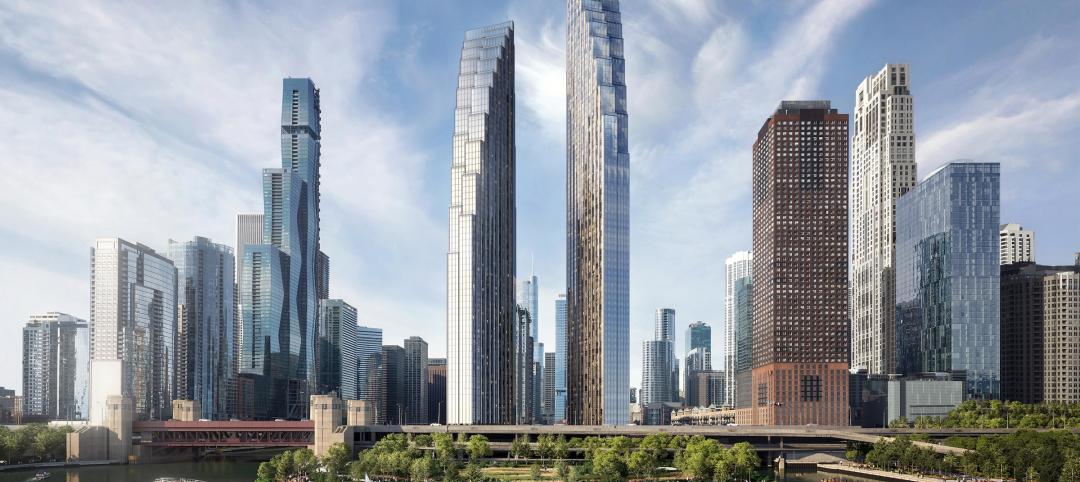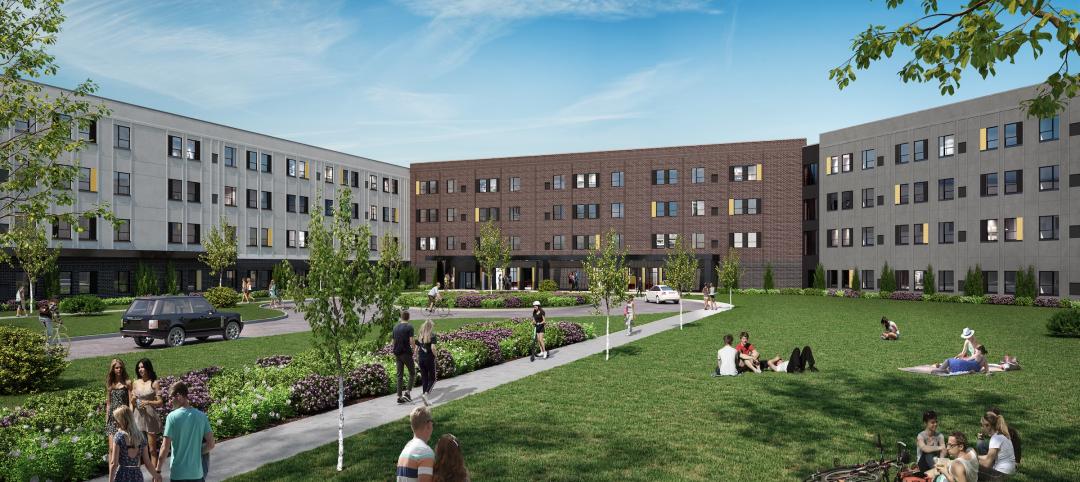They’re all “world middleweight cities” that are likely to become regional megacities (10 million people) by 2025—along with Dongguan, Guangzhou, Hangzhou, Shenzhen, Tianjin, and Wuhan (China); Kinshasa (Democratic Republic of the Congo); Jakarta (Indonesia); Lahore (Pakistan); and Chennai (India).
These “emerging middleweight” cities are among the “City 600,” the top 600 cities by contribution to global GDP growth from 2007 to 2005, as defined in a new report from McKinsey Global Institute: “Urban World: Mapping the economic power of cities”.
The 1.5 billion people who live in the City 600 (22% of world population) accounted for $30 trillion of GDP in 2007—more than half of global GDP. The top 100 alone generated $21 trillion, 38% of global GDP, according to McKinsey.
By 2025, these 600 cities will be home to 2.0 billion, a quarter of the world’s population, and account for $64 trillion, or 60% of global GDP.
The top 25 “hot spots” for GDP by 2025 include (in rank order) New York, Los Angeles, Chicago, Dallas, Washington, D.C., Houston, Philadelphia, Boston, and San Francisco, along with such places as São Paolo (Brazil), Rhein-Ruhr (Germany), Mexico City, Randstad (Netherlands), Shanghai, Beijing, and Hong Kong.
Other key findings of the McKinsey study:
• By 2025, the makeup of the City 600 will change as the center of gravity of the urban world moves south and east. One-third of developed market cities will no longer make the top 600.
• By 2025, up to 136 new cities will enter the City 600 list, all of them from the developing world—100 of them from China alone, including Haerbin, Shantou, and Guiyang.
• India will contribute 13 newcomers to the City 600 list, including Hyderabad and Surat. Latin America will add eight, notably Cancún (Mexico) and Barranquilla (Colombia).
• About 310 million more people of working-age population will live in the City 600 by 2025—almost 35% of the expansion of the global workforce, almost all of it in emerging markets and two-thirds in China and South Asia.
What do all these fascinating data points mean to the design and construction industry, and to you as an AEC professional? In a nutshell, the McKinsey people are saying, If you want to grow your business—and your career—over the next 15 years, you must look to foreign climes.
It is in the emerging cities that GDP will be growing at a faster rate than global GDP. Where the workforce will be expanding more quickly than in the rest of the world. Where demand for housing, retail shops, schools, libraries, museums, data centers, universities, office buildings, religious centers—all the magnificent structures you and your firms create and build—will be accelerating at a hyperfast rate compared to the growth, if any, in much of the developed world.
To be competitive in the coming decade and a half, AEC firms and professionals are going to have to shift their lines of sight eastward and southerly, to places with names like Luanda, Chongqing, Dhaka, Colombo, and Grande Vitória.
Related Stories
University Buildings | Jun 28, 2024
The American University in Cairo launches a 270,000-sf expansion of its campus in New Cairo, Egypt
In New Cairo, Egypt, The American University in Cairo (AUC) has broken ground on a roughly 270,000-sf expansion of its campus. The project encompasses two new buildings intended to enhance the physical campus and support AUC’s mission to provide top-tier education and research.
MFPRO+ New Projects | Jun 27, 2024
Chicago’s long-vacant Spire site will be home to a two-tower residential development
In downtown Chicago, the site of the planned Chicago Spire, at the confluence of Lake Michigan and the Chicago River, has sat vacant since construction ceased in the wake of the Great Recession. In the next few years, the site will be home to a new two-tower residential development, 400 Lake Shore.
Codes and Standards | Jun 27, 2024
Berkeley, Calif., voters will decide whether to tax large buildings with gas hookups
After a court struck down a first-in-the-nation ban on gas hookups in new buildings last year, voters in Berkeley, Calif., will have their say in November on a measure to tax large buildings that use natural gas.
Mass Timber | Jun 26, 2024
Oregon State University builds a first-of-its-kind mass timber research lab
In Corvallis, Oreg., the Jen-Hsun Huang and Lori Mills Huang Collaborative Innovation Complex at Oregon State University aims to achieve a distinction among the world’s experimental research labs: It will be the first all-mass-timber lab meeting rigorous vibration criteria (2000 micro-inches per second, or MIPS).
Sustainability | Jun 26, 2024
5 ways ESG can influence design and create opportunities
Gensler sustainability leaders Stacey Olson, Anthony Brower, and Audrey Handelman share five ways they're rethinking designing for ESG, using a science-based approach that can impact the ESG value chain.
Student Housing | Jun 25, 2024
P3 student housing project with 176 units slated for Purdue University Fort Wayne
A public/private partnership will fund a four-story, 213,000 sf apartment complex on Purdue University Fort Wayne’s (PFW’s) North Campus in Fort Wayne, Indiana. The P3 entity was formed exclusively for this property.
Sustainability | Jun 24, 2024
CBRE to use Climate X platform to help clients calculate climate-related risks
CBRE will use risk analysis platform Climate X to provide climate risk data to commercial renters and property owners. The agreement will help clients calculate climate-related risks and return on investments for retrofits or acquisitions that can boost resiliency.
MFPRO+ News | Jun 24, 2024
‘Yes in God’s Backyard’ movement could create more affordable housing
The so-called “Yes in God’s Backyard” (YIGBY) movement, where houses of worship convert their properties to housing, could help alleviate the serious housing crisis affecting many communities around the country.
Student Housing | Jun 20, 2024
How student housing developments are evolving to meet new expectations
The days of uninspired dorm rooms with little more than a bed and a communal bathroom down the hall are long gone. Students increasingly seek inclusive design, communities to enhance learning and living, and a focus on wellness that encompasses everything from meditation spaces to mental health resources.
Museums | Jun 20, 2024
Connecticut’s Bruce Museum more than doubles its size with a 42,000-sf, three-floor addition
In Greenwich, Conn., the Bruce Museum, a multidisciplinary institution highlighting art, science, and history, has undergone a campus revitalization and expansion that more than doubles the museum’s size. Designed by EskewDumezRipple and built by Turner Construction, the project includes a 42,000-sf, three-floor addition as well as a comprehensive renovation of the 32,500-sf museum, which was originally built as a private home in the mid-19th century and expanded in the early 1990s.
















